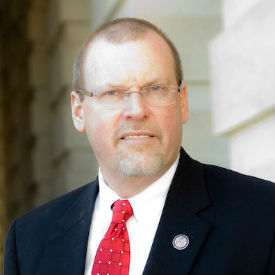
These words of President Ronald Reagan come to mind when I observe events in Hong Kong today. The people of that territory in East Asia, which came under the sovereignty of China less than a generation ago, are now fighting to keep alive the freedom they have known.
Hong Kong possesses a unique status in China, rooted in its history.
In 1842, the British Empire formally took control of the island of Hong Kong. Parts of the surrounding territory came into its possession as well through the nineteenth century. Some of these areas, the New Territories, were leased from China for a 99-year period under an agreement ratified in 1898.
During the period of British rule, Hong Kong blossomed as an important port and financial center. Further, it was governed by Western-style institutions and practices, giving it an identity distinct from mainland China.
Refugees often flocked to the area, especially residents of China fleeing Japanese invaders in the 1930s and the Chinese civil war between Nationalists and Communists following World War II.
In the 1980s, nearing the end of the 99-year lease for the New Territories, the British and Chinese governments negotiated the cession of Hong Kong in its entirety back to China. The Joint Declaration they signed in 1984 established the model of “one country, two systems.”
While China would exercise sovereignty over the territory beginning in 1997, Hong Kong would retain considerable autonomy over its laws as well as its free market system. It would have its own judiciary and legal system.
Essentially, Hong Kong would be able to keep the things that had made it thrive.
Many hoped that the incorporation of a prosperous, free area into China and letting it keep its rules would provide an example for that country. The Communist mainland could see the benefits that Hong Kong enjoyed thanks to its government and market economy.
Margaret Thatcher, the British prime minister who had negotiated the Joint Declaration, expressed this view as her country prepared to turn over Hong Kong to China:
Chinese people will come to Hong Kong, they’ll see and they’ll say why is it different, and what is the difference? It is the same people, the same talents, but here there is a rule of law founded on the belief that each and every person matters in personal lives.
Unfortunately, in the years since China assumed control over Hong Kong, that hope has not been realized.
Instead, China’s Communist oligarchic rulers have sought to bring the territory more thoroughly under their thumb.
Earlier this year, a bill was introduced in Hong Kong’s legislative body to permit extradition to mainland China. It would encroach on Hong Kong’s independence, potentially allowing China to target political dissidents and deprive residents of the rights they enjoy.
Thousands of people took to the streets in protest. The object of their movement grew beyond the specifics of the extradition bill. They were standing up for their rights.
China responded by cracking down on the protestors, with police using tear gas and rubber bullets, and even live ammunition on a few occasions. It threatens to acquire the political domination over Hong Kong it wants by force.
The history of Communist rule in China suggests this is no idle threat.
The Communist oligarchs invaded Tibet in 1950 and brutally put down an uprising there in 1959. Their suppression of the pro-democracy protests in Tiananmen Square in 1989 shocked the world; the number of people they killed has never been established for sure. In our time, they detain individuals of the Uighur ethnic minority in concentration camps.
The people of Hong Kong deserve America’s support as they stand up for democracy. When the U.S. House of Representatives recently passed the Hong Kong Human Rights and Democracy Act of 2019, which would hold China accountable for its actions, I voted for it. President Trump signed the bill into law on November 27.
From our own experience, we know the value of the timeless principles of liberty. Hong Kong knows this, too, and we should stand with them in their contest for freedom.
If you have questions, concerns, or comments, feel free to contact my office. You can call my Abingdon office at 276-525-1405, my Christiansburg office at 540-381-5671, or my Washington office at 202-225-3861. To reach my office via email, please visit my website at www.morgangriffith.house.gov. Also, on my website is the latest material from my office, including information on votes recently taken on the floor of the House of Representatives.










